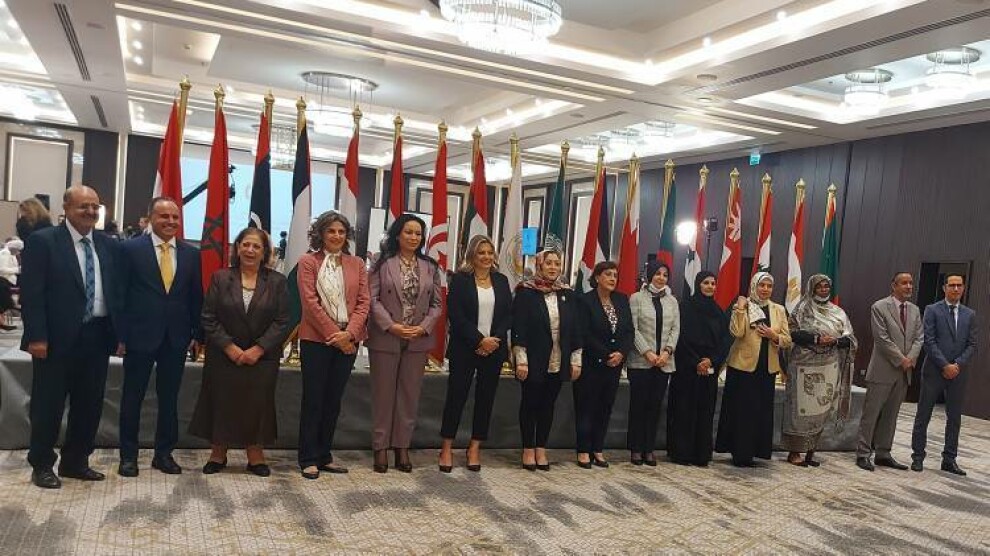Impact of global crises on women-1
Women are most affected by global crises. Violence against women and inequality prevent them from participating in the labor force.

ASMAA FATHÎ
Cairo- Women specialists continue to work in order to understand the impact of natural disasters, financial crises, wars, and armed conflicts in the Arab world on women. The Arab Women Organization (AWO) has released its report entitled, “The Impact of Global Crises on Women in Arab Countries” in cooperation with UN Women.
The year 2020 marked a milestone for gender equality, it is the 25th anniversary of the Beijing Declaration and Platforms for Action for Gender Equality. Globally it was supposed to be a year for highlighting the achievements in gender equality since 1995, evaluating progress, and identifying major challenges. However, 2020 was hit by the Covid-19 pandemic, which resulted instead in detrimental effects on women. Any global crisis is expected to affect every human being, but for women, it is always twice as hard. According to a regional study, humanity has faced many disasters and crises such as floods, fires, earthquakes, landslides, storms, hurricanes, and pandemics leaving devastating effects on population and property, and many countries have failed to confront them due to the lack of capabilities. The resilience of societies in the face of natural disasters depends on the state of societal awareness, organizational capabilities, economic potentials, and policies.
“Women are most affected by global crises”
Women are most affected by global crises. Additionally, women continue to experience other challenges that put their health and wellbeing at risks, such as domestic violence, rape, sexual harassment, and discrimination in hiring and promotion. A number of factors can explain why disasters contribute to violence against women. During armed conflicts and war, women are the first segment being tried to put under control. Men spill out hatred against women on the pretext that they earn a living for the family and they inflict violence against them. Women have been subjected to violence due to the embedded patriarchal norms claiming that all the responsibility of the household work fell on women’s shoulders in most households.
Health and psychological impacts
The situation of women in conflict zones such as Sudan, Syria, Iraq, Libya, and Yemen is getting worse day by day. Conflicts and wars can result in higher levels of gender-based violence against women; they are killed, subjected to physical violence, harassment, rape, kidnapping, torture, exploitation, and Female Genital Mutilation (FGM). All these cause women to suffer from long-lasting psychological traumas and health problems.
The causes of domestic violence
Domestic violence is on rising across the world due to armed conflicts, forced displacement, and financial crises. Studies show that violence against women is common. It also puts women's lives at risk and prevents them from developing their talents, taking part in economic and social development.
More research is needed
No matter how much natural and human resources a country provides, it cannot be economically independent of the whole world. Every country is affected by crises. The global economic system causes a series of disorders that lead to declining growth rates, cuts in supply chains, and imbalances in countries' budgets. This situation causes an increase in the unemployment rate and poverty. And again women are most affected by these. Arab world needs more research to determine the impacts of global crises on women, how to support women to cope with these crises.
Women are seen as the weakest link in the chain
According to the report of the Arab Women Organization, the Arab world has faced a number of economic crises since the beginning of the third millennium and this has affected the living standards of individuals and societies. And women have been most affected by these economic crises because women are seen as the weakest link in the chain. The effects of the crises vary according to the position of women in society.
The report reveals that the number of women participating in the labor forces, except in agriculture, has increased in the Arab region in recent years. The female employment rate has also increased, one-third of women participate in both in public and private sectors; they work as doctors, engineers, senior management, and technicians, according to the report. But they still face gender-based discrimination.
Tomorrow: Female labor force participation rate remains low in Egypt
